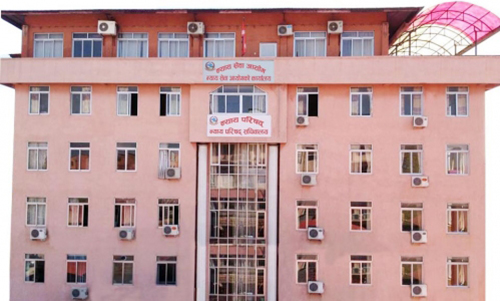Madhesi inclusion in judiciary still a far cry
Kathmandu, December 7
Although the constitution guarantees proportional inclusion of all social groups in all state organs, the judiciary has not been ensuring this principle in the appointment of judges.
Of the 11 Supreme Court justices who were appointed on 1 August 2016, there was only one Madhesi Judge — Anil Kumar Karna.
Nine judges of the SC were appointed after these appointments, yet there was no judge from the Madhesi community. Tej Bahadur KC and Purushottam Bhandari were appointed judges of the Supreme Court in January 2017. Bam Kumar Shrestha, Dambar Bahadur Shahi and Tanka Bahadur Moktan were appointed SC judges in October 2017. Similarly, Prakash Dhungana, Sushmalata Mathema, Hari Phuyal, Kumar Regmi and Manoj Kumar Sharma were appointed SC judges in April this year.
The Judicial Council recommended 80 High Court judges in 2017, but there were only three Madhesis and one Dalit judge. Out of 80 HC judge nominees, 62 were from Khas Arya group accounting for 31.25 per cent of the population. Only four persons, or 5 per cent, from the Madhesi community were nominated.
JC has recommended only three women as High Court judges against more than 51.4 per cent population of women.
Nepal Bar Association had opposed the appointment of High Court judges terming it a violation of the Judicial Council Act.
Advocate Pankaj Karna said there had to be 17 to 18 Madhesi judges among 80 high court judges to reflect the proportionality of the Madhesi population, but there were less than five Madhesi judges. “The chief justice-headed JC has not been following the principle of proportional inclusion in the judiciary and unfortunately the SC, which upholds the constitution, often quashes writ petitions filed against the JC’s failure to ensure proportional inclusion,” Karna added.
Karna said arguments were often made that there were not many Madhesis among district judges, hence their inclusion could not be ensured in appointment of high court judges, but if the JC wanted to ensure proportional inclusion, it could appoint judges from among lawyers.
“JC must prepare a list of clusters of judges in all tiers of court and start appointing judges accordingly to ensure proportional inclusion. If the JC cannot ensure proportional inclusion due to lack of seats, then it must prepare a backlog system whereby people of the clusters whose participation could not be ensured, should be ensured later,” Karna argued.
He said political parties that were supposed to raise the issue of proportional inclusion in the judiciary were maintaining mysterious silence over violation of constitutional and legal provisions.
Chief Attorney of Province 2 Dipendra Jha said Deputy Prime Minister and Minister of Law, Justice and Parliamentary Affairs, who had raised the issue of proportional inclusion all these years, must form a committee to ensure that constitutional and legal provisions of proportional inclusion were fully implemented. He said diversity in the judiciary was essential to ensure fair and balanced interpretation of laws and the constitution.






